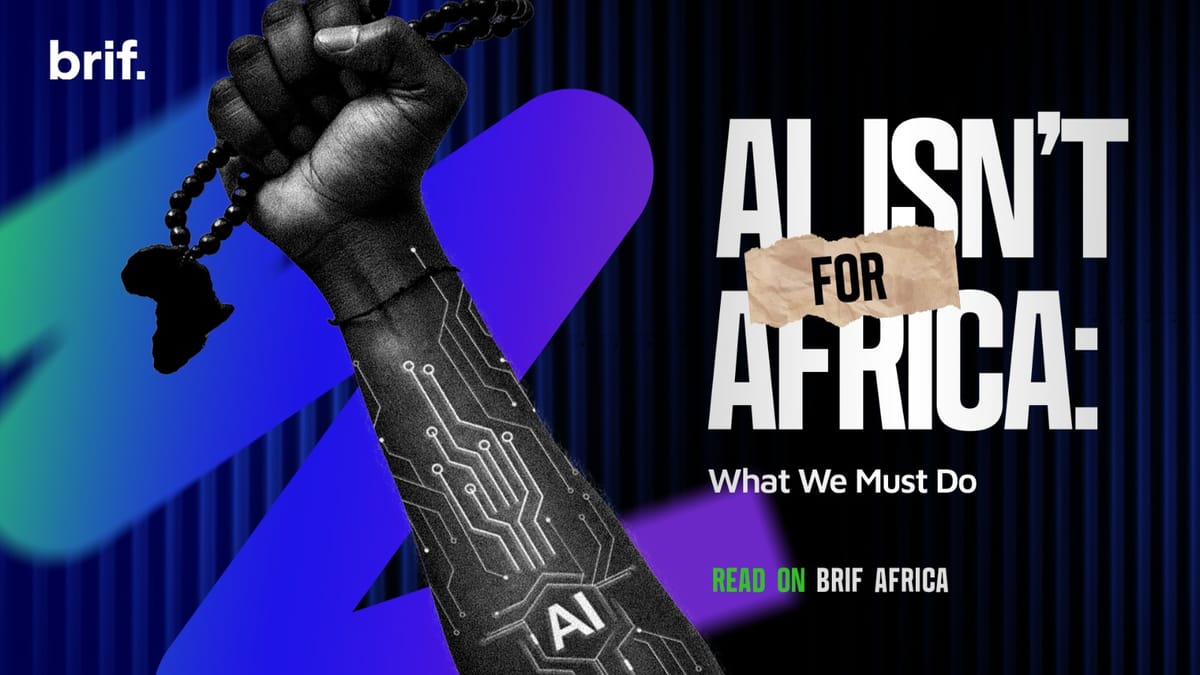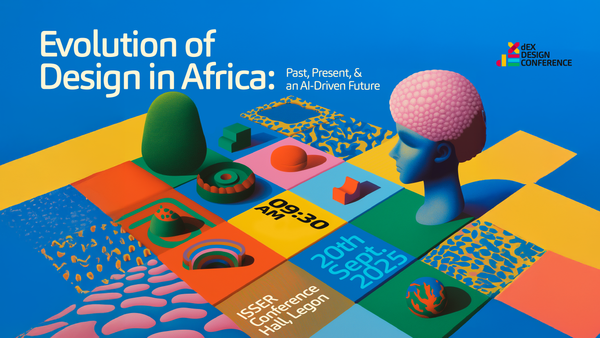AI Isn’t For Africa: What We Have To Do.
Africa is at a crossroads. As an African, it’s hard not to feel both excitement and unease when hearing about the rapid rise of Artificial Intelligence (AI) across the globe.

We see headlines about AI transforming industries, creating unimaginable efficiencies, and changing the way societies function. But where does Africa fit into this picture? Truth be told, while AI has already made significant moves in Europe, the Americas, and Asia, Africa seems to be playing catch-up.
But AI isn’t inherently “for” or “against” any region. The real question is: How Prepared is Africa to Leverage AI for its Own Development? We stand at a critical juncture where AI could either be a golden opportunity for transformation or another technological wave that leaves us behind. I’ve often thought about how much potential AI holds for us. Yet, if we don’t take intentional steps, the gap between us and the rest of the world might only widen and decisions about our future would be made elsewhere.
How AI Could Be Good for Africa
Growing up, I’ve seen how technology can solve problems that seemed unconquerable. I imagine how AI could go even further, especially in agriculture, a sector many of us are connected to through family or community. For instance, South Africa’s Aerobotics which uses AI-powered drones and satellite imagery to help farmers optimize crop yields and reduce risks by offering precise data on crop health. Imagine the impact this could have across the continent, where small-scale farming is the backbone of many economies.
Did you know Africa struggles with a ratio of only 1 doctor for every 5,000 people in some regions, far from the World Health Organization’s recommendation of 1 per 600. AI tools could help close this gap by enhancing diagnostics and even providing remote healthcare solutions for underserved areas. Take a second to imagine an AI-powered app that could assist in diagnosing diseases like malaria or tuberculosis, which remain prevalent in rural communities. This technology could significantly reduce the strain on health systems in Africa.
We can attest that Mobile banking services are already helping millions of Africans access financial services without traditional bank branches. AI could take this further by providing services like loan approvals or credit scoring using non-traditional data sources, making it easier for people without informal credit histories to access financial services. With 66% of Sub-Saharan Africa's population still unbanked, AI could be a game-changer.
Education stands to benefit too. AI could provide personalized learning experiences for students across the continent, offering adaptive learning platforms that cater to different needs and skill levels. In rural areas with limited access to trained teachers, AI-driven platforms could supplement education, helping bridge the gap in literacy and digital skills.
The Negative Impact AI Could Have on Africa
But it’s not all positive.
As Africans, one of our biggest concerns is the risk of job displacement. Africa has one of the highest informal work sectors globally, employing about 80% of the workforce in some regions. AI-driven automation threatens to replace many of these jobs, particularly in industries like agriculture, manufacturing, and even customer service. While AI will create new jobs, it could on the other hand displace millions of workers in low-skilled positions according to a report made by the Centre for Intellectual Property and Information Technology Law.
Access to the internet is a basic requirement for deploying AI at scale and only about 40% of Sub-Saharan Africa has access to it. This means, in countries where unreliable electricity and limited connectivity are common, implementing AI solutions could be more of a luxury than a necessity. Without a substantial investment into digital infrastructure, AI could worsen existing inequalities, with only the urban areas benefiting from the advancements.
Data privacy is another concern that raises thoughts. Many African countries lack robust legal frameworks to govern AI, particularly around data collection and usage. Given that AI relies on vast amounts of data to function effectively, the absence of proper regulation leaves room for exploitation. Who owns our data, and how is it being used? Without strong data protection laws, the very technology meant to empower us could end up exposing us to significant risks
What We Must Do to Make the Most Out of AI
But all is not lost. We have the opportunity to shape how AI impacts us, and it starts with taking control of our narrative. For Africa to fully benefit from AI, we need to take bold steps now. First, we must invest in our people - education and skills development. As Africans, we are naturally resourceful and innovative, but the skills gap in tech is real. The African continent has a shortage of skilled professionals in fields like AI and data science. A World Bank report highlights that Africa faces a critical skills gap in the technology sector.
Governments and private organizations should prioritize education in AI, data science, and related fields. Countries like Rwanda have started to invest in AI learning centers, and Kenya is home to AI startups tackling local issues.We need more programs like the Africa AI Accelerator in Ghana, which is empowering young entrepreneurs to create AI-driven solutions for African problems.
We also need to address our infrastructure gaps. This isn’t just a task for governments, private companies and international partners must also play a role. We need collaborative efforts, with telecom companies helping to build the digital foundations that AI will rest upon. Investments in broadband infrastructure are already underway, but more needs to be done to reach rural areas.
Finally, we need ethical guidelines to ensure AI benefits all Africans. We must develop data privacy laws that protect our people and promote AI systems that are transparent and fair. Countries like South Africa have begun working on AI regulatory frameworks, but many others lag behind. Importantly, Africa must aim to produce its own AI technologies, so we aren’t simply at the mercy of foreign innovations. By creating a vibrant ecosystem that nurtures homegrown AI talent, we can ensure AI solutions address the unique challenges we face—whether in agriculture, healthcare, or education.
Conclusion.
AI presents a double-edged sword for Africa. While it holds great potential to drive economic growth, improve healthcare, and transform industries, it also comes with risks that must be carefully managed. AI might not feel like it’s “for” Africa yet, but that doesn’t have to be the case. With the right investments in education, infrastructure, and ethical frameworks, we can turn AI into a tool that propels us forward rather than leaves us behind. We can no longer afford to sit on the sidelines. AI offers a chance to reimagine what our future looks like, but only if we seize that opportunity.
We are the youngest continent in the world, and if there’s one thing I believe in, it’s the power of our youth. It’s time to take control of AI and use it to shape Africa’s future. The rest of the world may be ahead, but that doesn’t mean we can’t catch up. The time to act is now.
What do you think? Will Africa be able to catch up or we would be left behind?
Let's continue the conversation in our community. See ya!





